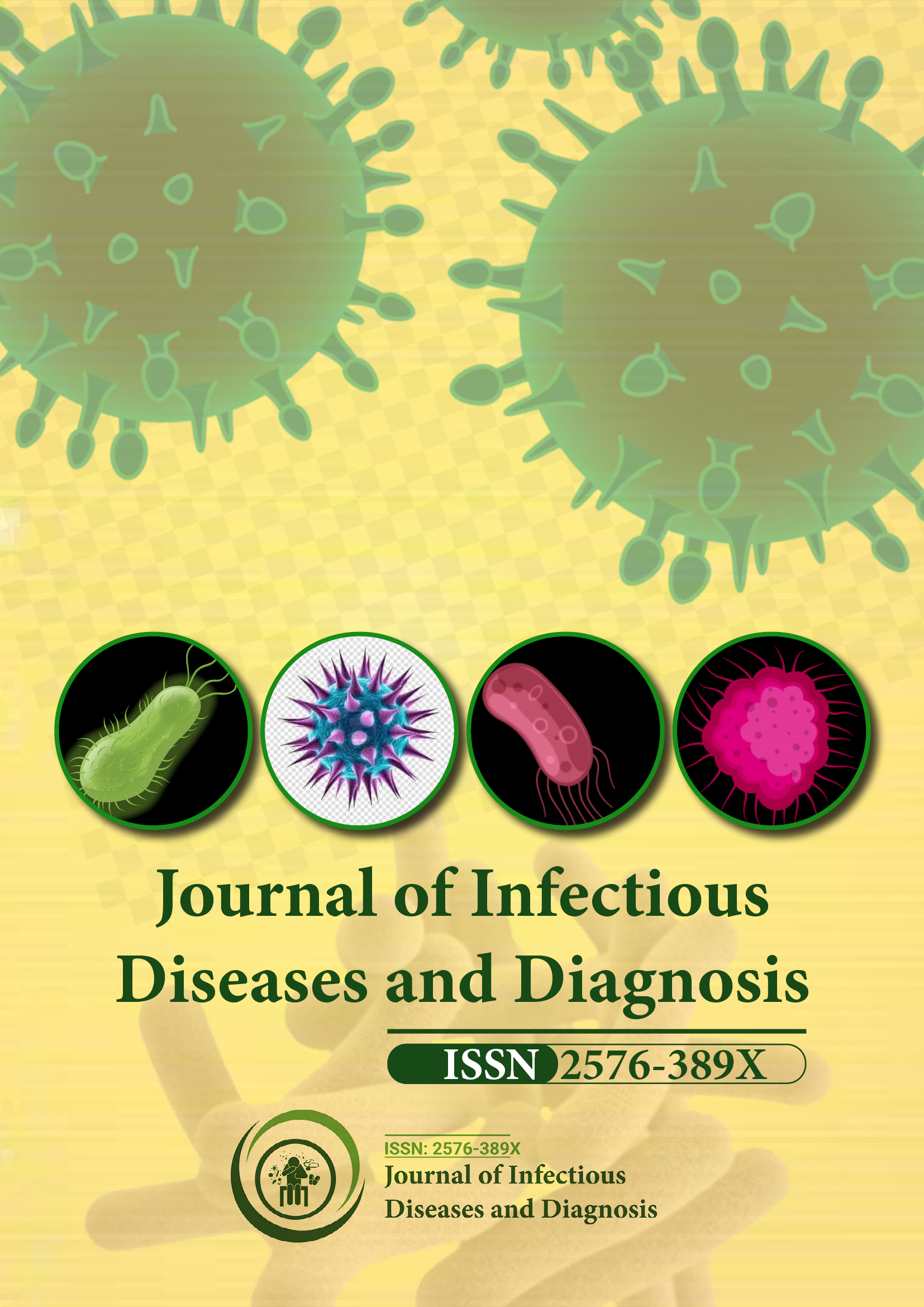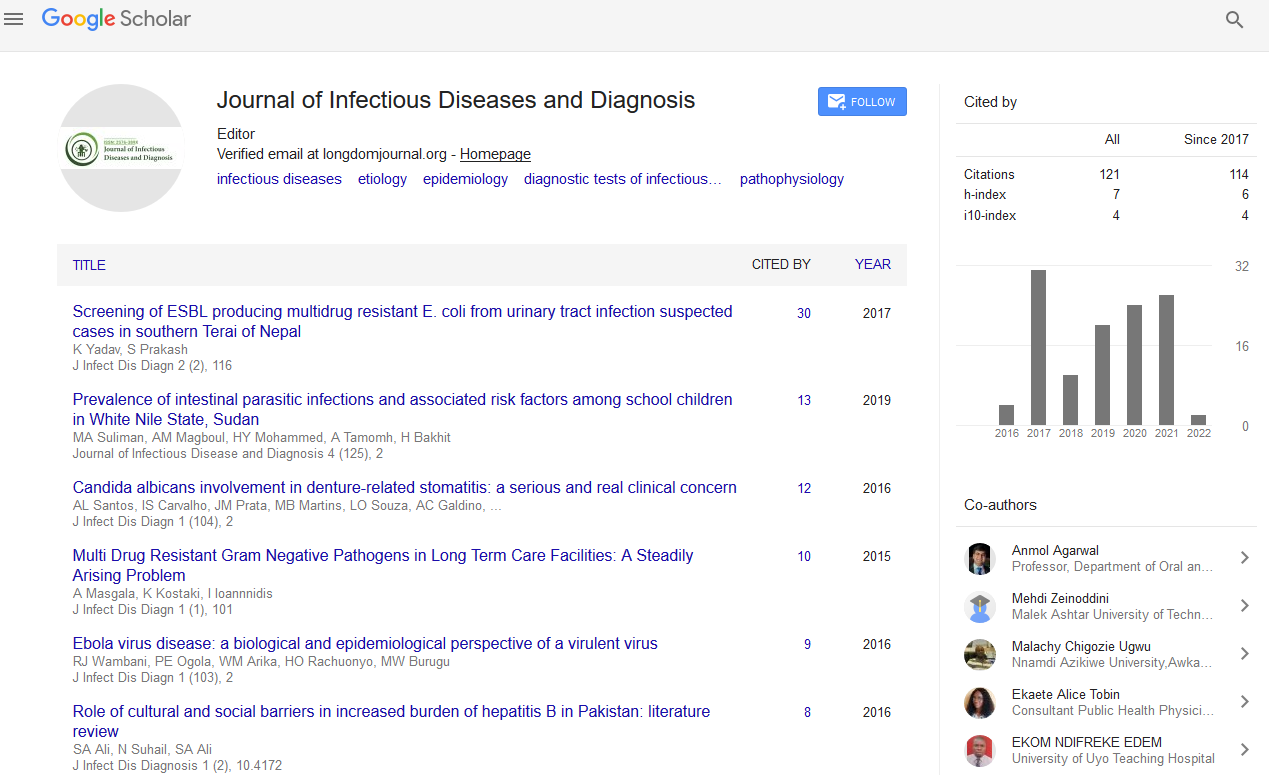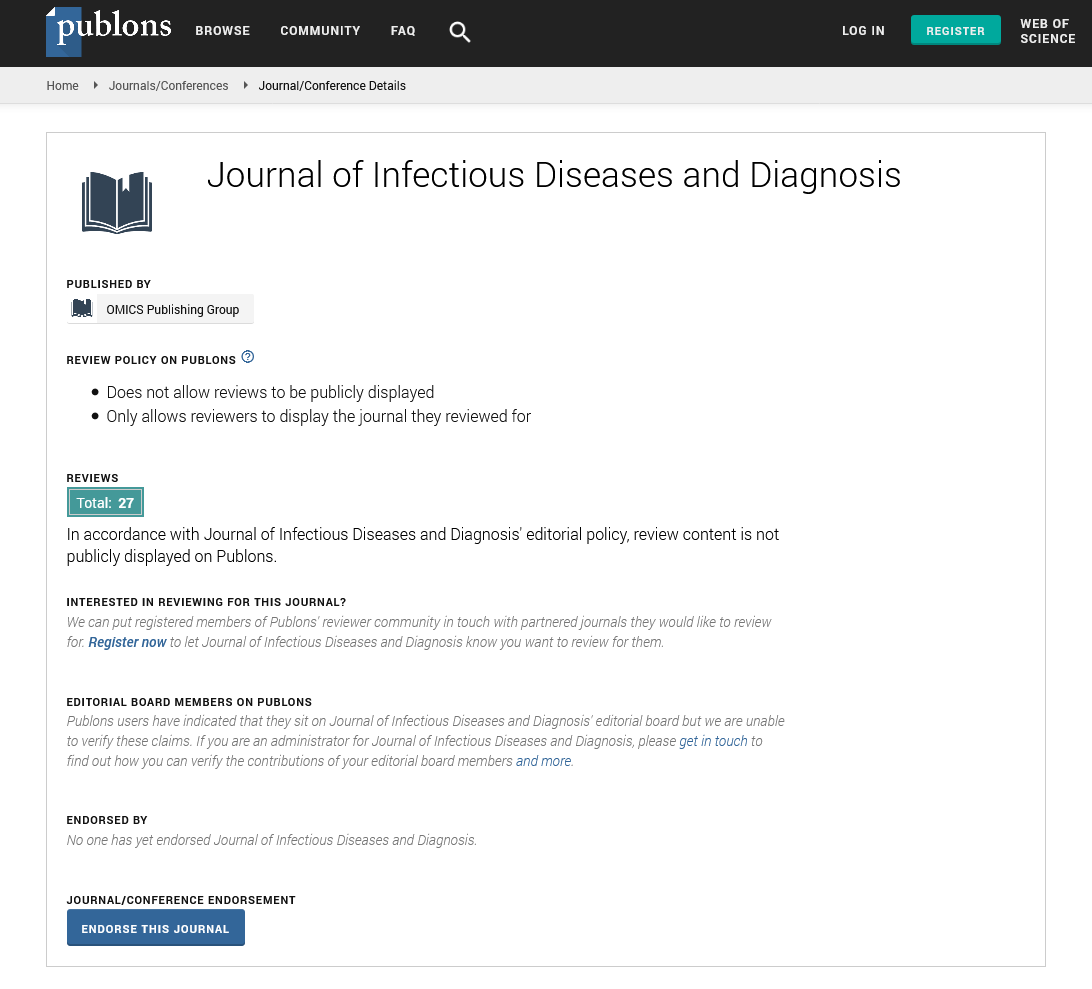Indexed In
- RefSeek
- Hamdard University
- EBSCO A-Z
- Publons
- Euro Pub
- Google Scholar
Useful Links
Share This Page
Journal Flyer

Open Access Journals
- Agri and Aquaculture
- Biochemistry
- Bioinformatics & Systems Biology
- Business & Management
- Chemistry
- Clinical Sciences
- Engineering
- Food & Nutrition
- General Science
- Genetics & Molecular Biology
- Immunology & Microbiology
- Medical Sciences
- Neuroscience & Psychology
- Nursing & Health Care
- Pharmaceutical Sciences
Abstract
Utility of Galactomannan and (1-3)-Beta-D-Glucan Assays in the Diagnosis of Invasive Aspergillosis
Caitlin Helm, Ali Bacharouch and Alexander Blackwood R
Objective: The utility of serum and bronchoalveolar lavage (BAL) galactomannan (GM) and (1-3)-beta-D-glucan (BDG) assays in the diagnosis of Invasive Aspergillosis (IA) remains unclear. Variable false positive and false negative rates complicate physician understanding and proper interpretation of test results, which may contribute to overuse of empiric treatment with antifungals. The purpose of this study is to examine the utility of GM and BDG assays for the diagnosis of IA.
Methods: A retrospective chart review was conducted of Michigan Medicine patients who had at least one GM or BDG assay completed from June 2013 to March 2016 to compare diagnostic evidence of IA as defined by EORTC/MSG guidelines to the results of the GM and BDG assays. Effects of piperacillin-tazobactam and solid organ transplants on test efficacy were also evaluated.
Results: GM serum, GM BAL, BDG serum, and BDG BAL assays had a sensitivity of 47.3%, 88.0%, 80.0%, and 100%, respectively and a specificity of 87.1, 58.3%, 40.0%, and 16.7%, respectively. The specificity of the GM serum assay was 87.1% for all patients, compared to 44% in patients on piperacillin-tazobactam. The overall specificity the four assays was 75.8% in patients with a solid organ transplant, compared to 57.6% in patients without a solid organ transplant.
Conclusions: This study found that GM BAL, BDG serum, and BDG BAL assays to have increased sensitivity than previously reported data but significantly lower specificity, thus suggesting that the negative predictive value of these tests is higher than previously stated. Therefore, they could be used as screening assays; however, the positive predictive value is lower than previously found, so positive results should be used cautiously. Use of piperacillin-tazobactam decreased specificity of GM serum assay, as expected. Patients with solid organ transplants had increased specificity compared to patients without transplants, which differs from previous findings.
Published Date: 2019-05-31; Received Date: 2019-05-18


